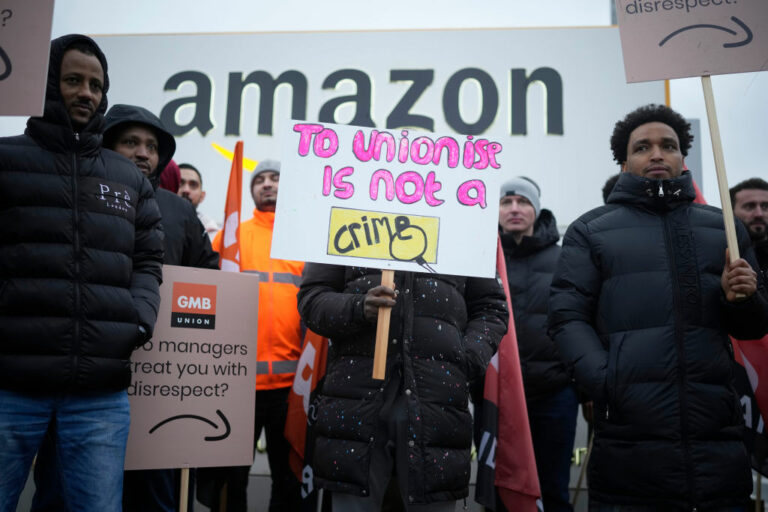Last month it was revealed that a substantial number of Brits – 78 per cent – would be encouraged to spend more if a retailer offered free returns.
Although returns are costing UK retailers £60 billion a year, many are embracing a policy of free returns just to stay ahead of rivals.
Online fashion giant Asos recently announced it would extend as well as implement stringent measures to its return policy. While customers can still obtain a full refund if items are returned within 28 days, for anything returned after that and within a window of 45 days, customers would receive a gift voucher for the amount spent.
“For fashion retailers who have new designs launching every three weeks or so, serial returners have a drastic impact on their cash flow”
However, the flipside is that Asos would use data to crack down on “serial returners” or fraudulent shoppers by disabling their account and preventing them from making purchases on their ecommerce site again.
Asos said it wanted to clamp down on these serial returners – those who purchase numerous items, wear them, then return them for a full refund – but it’s arguable whether the initiative would prompt customers to be cautious on spending.
This new policy is also a way to make sure customers can return their products in a timely manner, if they decide to do so. Although the voucher for slower returns ensures customers spend the same amount with Asos again, it could ultimately lead to a decreased number of late returns.
“For fashion retailers who have new designs launching every three weeks or so, serial returners have a drastic impact on their cash flow,” said Hilary Ross, head of retail at law firm DWF.
“Every day that an item is with a customer is a loss for the retailer, further squeezing already tight margins.”
Oliver Guy, global industry director of retail from Software AG, told Retail Gazette that Asos’s policy changes means serial returners will continue their activities with another retailer. Therefore, Asos could potentially lose shopper numbers altogether.
“Once Asos blocks a returner, the serial returner could simply start shopping elsewhere”
“Asos’s actions could well be a watershed moment that others may follow, given its strong position in the market,” Guy said.
“The problem is that once Asos blocks a returner, the serial returner could simply start shopping elsewhere.”
Software company NetDespatch’s chief executive Matt Robertson said: “Asos, Amazon, Zalando amongst other big players have somewhat suffered from their own growth and success.
“The process of free returns has ended up costing these companies a significant amount of money, whilst at the same time consumers are taking advantage of these services.
“The pressure on retailers to provide a premium returns service is increasing.
“Some may argue these new returns policies will make it increasingly more difficult for consumers to return items ultimately impacting customers loyalty to the brand and resulting in a loss in sales.”
Stuart Higgins, partner at consulting firm BearingPoint, said retailers were often taking a big risk when changing company policies, especially when customers expect too much from the business.
“Profit margins can be severely eroded due to the level of online returns”
“The cost to the customer for making a return is a highly sensitive decision for retailers to make,” he said.
“Research regularly shows that customers expect free returns and that they will decide who to shop with online based upon returns policy as well as price and lead time.
“However, given the cost of receiving and processing returns to a retailer, profit margins can be severely eroded due to the level of online returns.”
Meanwhile, principal consultant at software company Infor, Alfonoso Segura, argued that due to way fast fashion changes, retailers are “taking big risks when accepting long return windows”.
“Reverse logistics is one of the most sensitive challenges for fashion retailers when selling online,” he told Retail Gazette.
“This explains how Asos, a pure player, is changing from a ‘money back’ return policy to offering a gift voucher if returns are made after 45 days.
“63 per cent of millennials are now shopping online at least once a week”
“Fashion is ephemeral, based on trends and seasonality. The probabilities of margin losses are higher every week, as sales period is closer.”
The online shopping phenomenon isn’t showing any signs of slowing down, with 63 per cent of millennials now shopping online at least once a week according to First Direct.
First Direct brand and marketing director Helen Priestley said the lure of free deliveries and returns is further adding to the growing appeal of online shopping.
“Roughly £1 out of every £5 we spend with retailers in the UK is spent online, and that proportion is increasing every year,” she said.
The costs that retailers face from customers returning their items is rising. Jackie Mulligan, founder of ShopAppy, said the Asos policy update reveals just how unsustainable home delivery can be “and how challenging it is for retailers to pay for return services when customers buy multiple items to try on”.
She added that consumers sometimes prefer returning items online as it can minimise the effort of having to go to the shop during the day.
“Obviously, there are costs to Asos so this is one way that they can retain the custom, but it remains to be seen whether this is well received by customers who are used to other models,” she said.
“Long lead times for customer return periods and/or long returns processing lead times can lead to even pristine stock being marked down”
Higgins agreed with Mulligan on the convenience factor of returning products online, but highlighted that returns can cause problems for retailers. He said processing costs are often three times that of dispatching the original goods to the customer.
“Processing costs for returns are often not simply a function of logistics costs,” Higgins said.
“Long lead times for customer return periods and/or long returns processing lead times can lead to even pristine stock being marked down due to it being put back to stock late in the season.”
He also said that online giants such as Amazon can easily take over from Asos following its new policy because other ecommerce retailers can now take risks by offering more appealing initiatives.
“Whether this becomes the norm for online retailers is debatable. Particularly in the fashion sector where Amazon Wardrobe is now offering a ‘try before you buy’ service, with unlimited free returns, before the product is even purchased,” Higgins said.
“Given Amazon’s previous track record on innovations in customer service, this is likely to disrupt the sector significantly and we may find that the Asos initiative is short lived as a result.”
Meanwhile, Chris Long, managing consultant at multinational corporation Capgemini, told Retail Gazette that instead of following Asos’ lead, retailers should explore the data they collect from customers and use it to identify trends and buying/returning habits.
“Rather than deploying an investigation process, they should use these insights to open up a dialogue with their customers and leverage them for customer service opportunities,” he said.
“By analysing their customer returns in this way, retailers can get closer to understanding consumers and find a model which works for them.”
Click here to sign up to Retail Gazette‘s free daily email newsletter

















